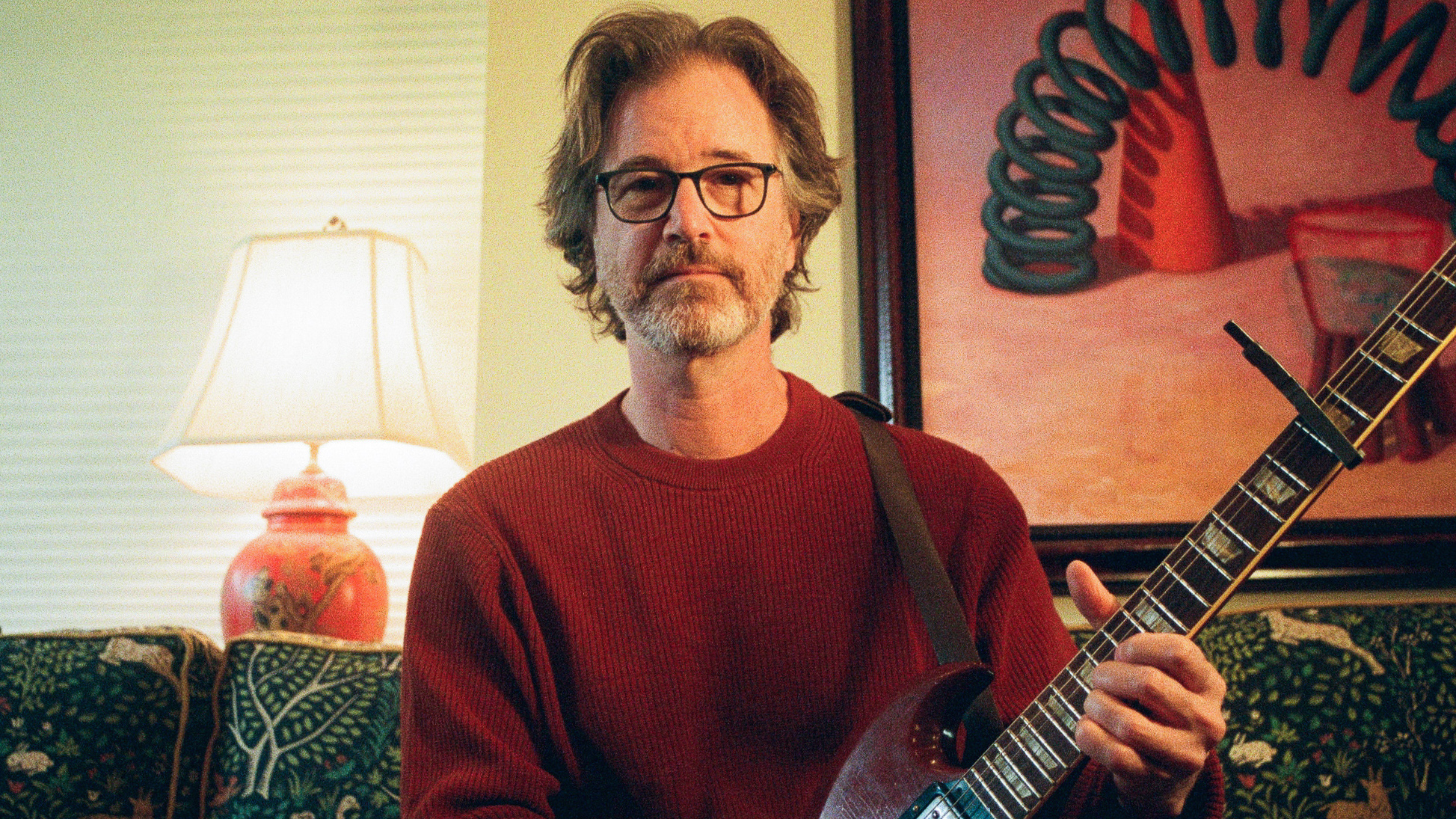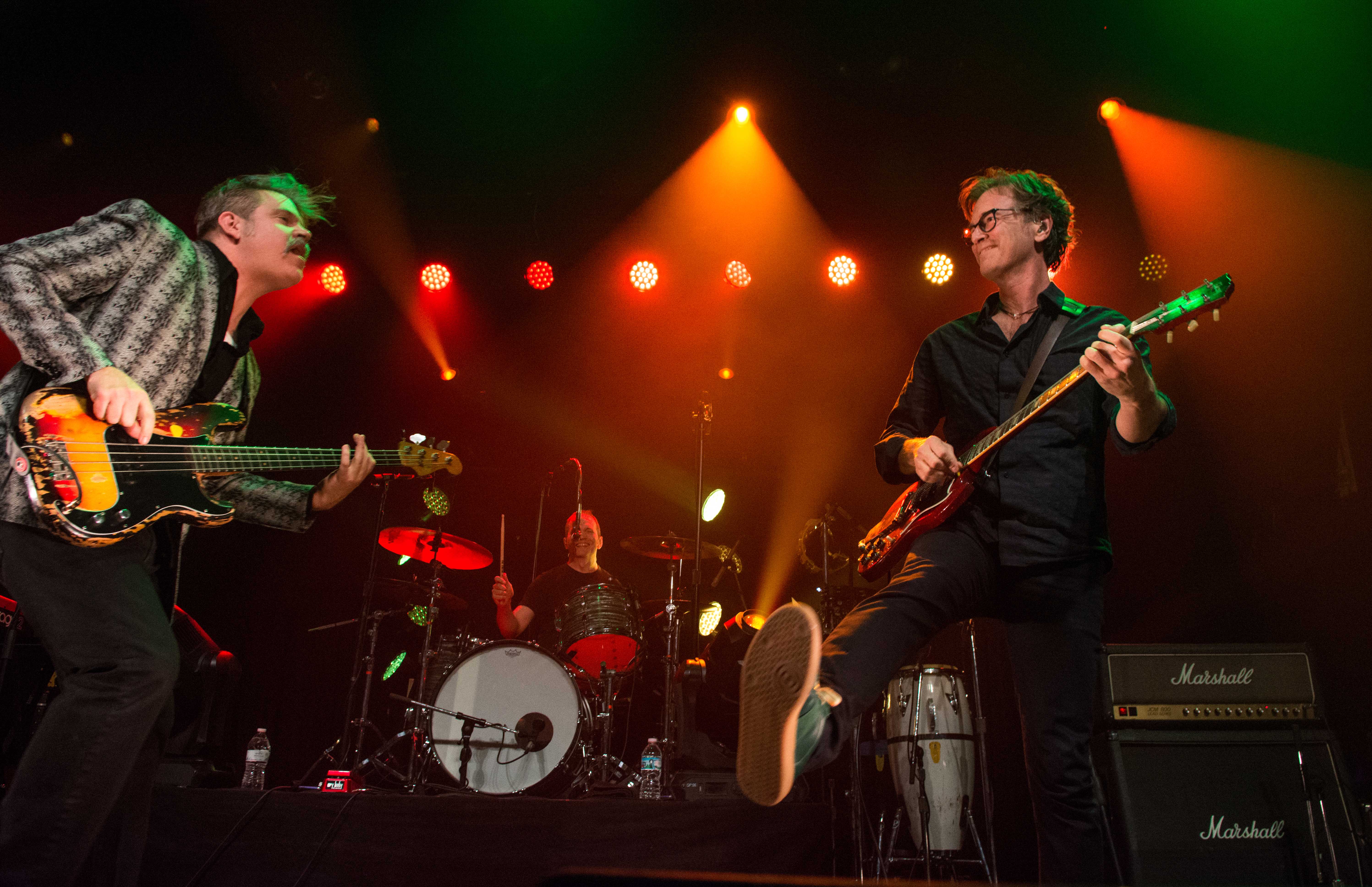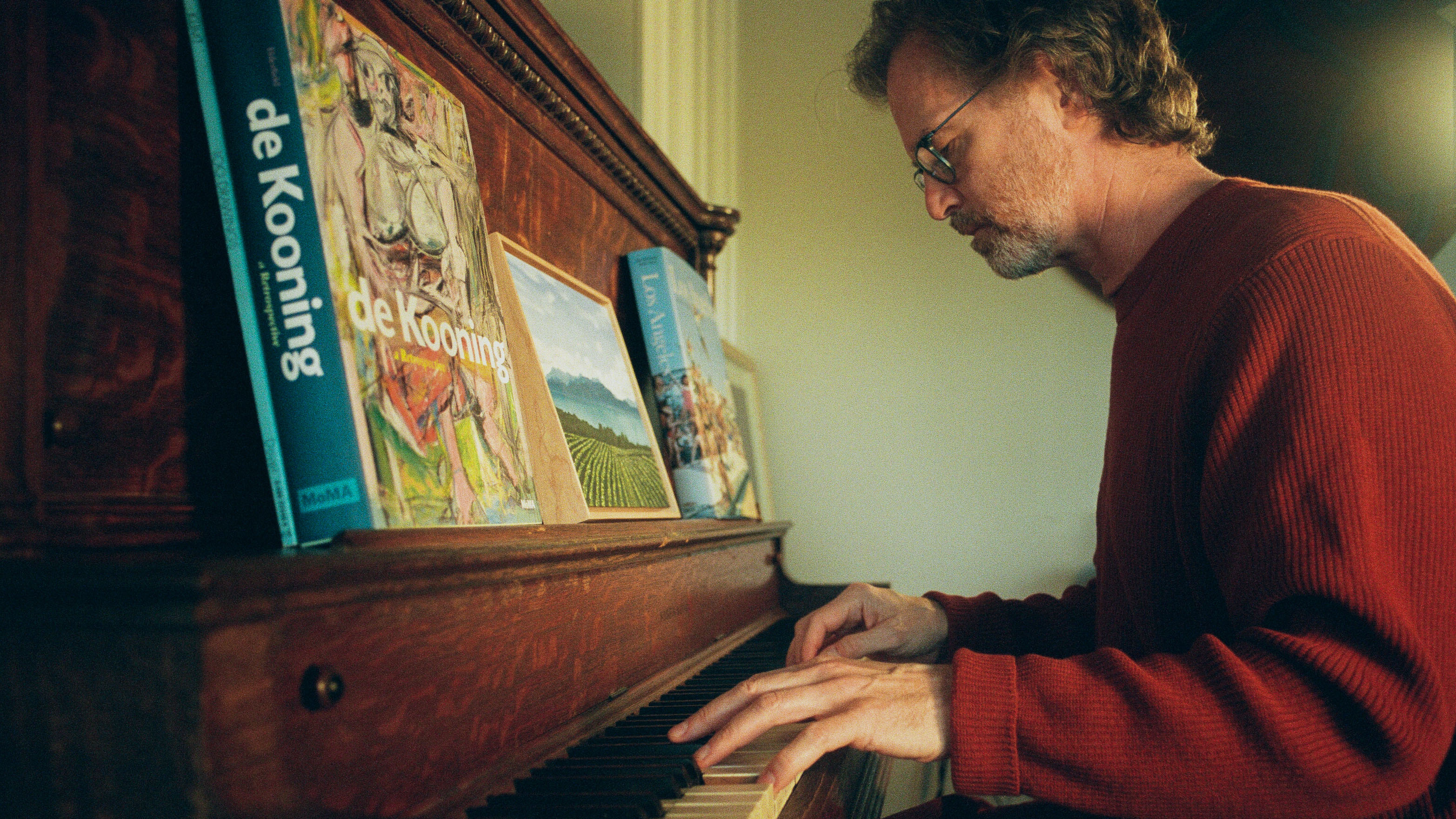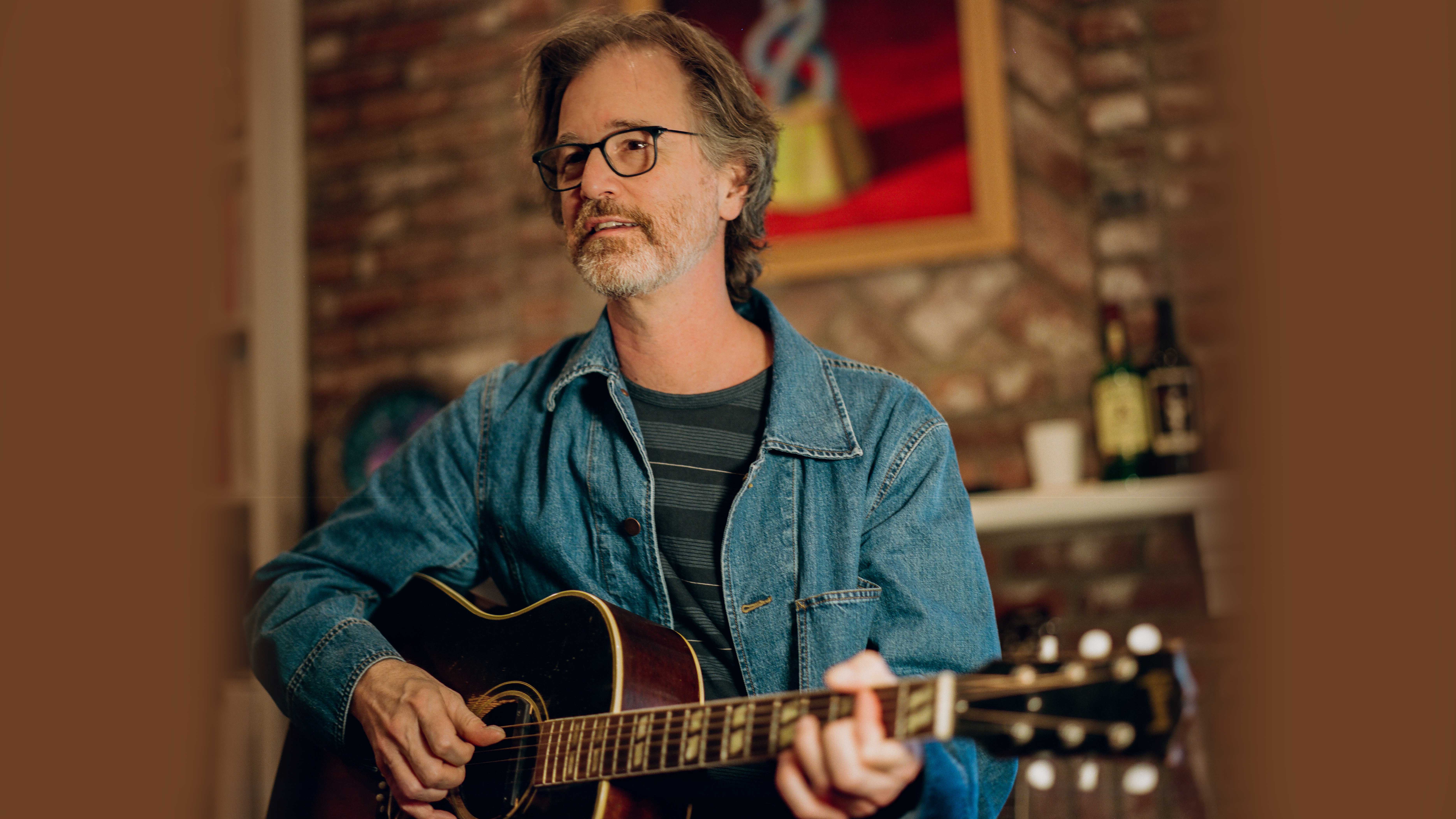"I often get sent to work with artists who are scared of co-writing and don’t want to do it" – Semisonic, Adele and John Legend songwriter Dan Wilson shares his 10 tips
As the Someone Like You co-writer returns with a new Semisonic EP after two decades, he's got great advice

If it’s songwriting advice you’re after you’d do well to follow danwilsonmusic on Instagram.
Semisonic’s frontman and songwriter to the stars, Dan Wilson’s an avid Insta poster, and alongside some late evening piano interludes and other fun stuff, he regularly offers up some secrets of the craft. Considering he’s got a raft of songwriting credits on platinum albums, and a shelf of Grammys through his work with Adele and The Dixie Chicks, his advice is well worth considering.

Ranging from the practical to the quirky, these nuggets are warm, encouraging, and almost zen at times: ‘If you’ve been thinking about it all day long, then it’s a good enough subject for a song’. And, on selecting the single from your latest batch of songs: ‘Does one of them make you feel really uncomfortable and embarrassed? That’s the one. Most embarrassing track = hit.’
Speaking via Facetime from his LA home, he laughs at a memory stirred. “We were working on [Semisonic’s 1998 breakthrough album] Feeling Strangely Fine, and our producer Nick Launay asked me what the single was. I thought it would be Closing Time and he said, ‘Yeah but that’s for the punters, that one’s so dumb!’ I don’t know, maybe that’s just the way I like it! The single might be the one that shows off your brilliance at your craft least of all.”
Dumb it may have been, but that pub-chucking-out anthem topped the US Billboard Modern Rock Chart and hit No.25 in the UK that year, back when single sales were very much a thing. The song and subsequent hits – Singing In My Sleep, signature tune Secret Smile and Chemistry – kept them on MTV, in charts across the western world, and on many a teenage bedroom, for years.
Their last album All About Chemistry landed in 2001 and the band called time after the concomitant tour. Wilson, bassist John Munson and drummer Jacob Slichter remained good friends and played benefit shows and fundraisers every year since, and years they’ve finally got some new Semisonic tunes to play, with the release of their EP You’re Not Alone. It only took 20 years…

"For several years, I got scared, weirded out – maybe I couldn’t do it anymore.”
“I had a period when I stopped touring with the band,” says Wilson, “and I made the album Free Life [2007] with Rick Rubin. It was a very all-encompassing phase, Rick and I collaborated for a bunch of years, and during that time I thought we’d do Semisonic again. I sat down to write some songs for them, and I just couldn’t do it. For several years, I got scared, weirded out – maybe I couldn’t do it anymore.”
Want all the hottest music and gear news, reviews, deals, features and more, direct to your inbox? Sign up here.
Then in early 2017 Wilson found himself speaking to Liam Gallagher about the possibility of writing for him. He wrote five ‘Liam songs’, but Wilson realised that “they sounded more Semisonic. That must have opened a door in my mind, I don’t know exactly why. We didn’t use any from that batch, but in the following 18 months I wrote a lot of songs that sounded like us.”
Semisonic’s stock-in-trade tunes are rocky, poppy and radio-friendly. They sound effortless, almost simple, and yet are highly crafted. Asked if there’s anything else that helps him get into the Semisonic mindset, Wilson gives a conspiratorial guitar-nerd smile and angles his Facetime camera at the most beautiful red Gibson SG, cabled up to a litter of boutique effects pedals – a Fuzz Factory (as used on Closing Time), Distortron and Box Of Rock from Zvex (a pedal company out of Wilson’s hometown, Minneapolis), and echo and reverb units from Chase Bliss.

"One of the ways I test a Semisonic song is to see if it sounds good played live, just drums, bass, guitar. If it’s not good then, it can’t be fixed!”
With the songs written, Munson and Slichter travelled to Wilson’s LA studio, and found their vibe hadn’t changed a bit. “Most musicians, when they hear a playback of a new song, are full of self-loathing,” says Wilson with a laugh. “But the first song we did, we nailed it, it sounded like us. I thought it would be more enjoyable if we didn’t do any wild soul-searching and change our sound after all this time – we should just be whoever we are now.
"They’re fast, fun, loud songs. One of the ways I test a Semisonic song is to see if it sounds good played live, just drums, bass, guitar. If it’s not good then, it can’t be fixed!”
Wilson’s a bright guy (Harvard is his alma mater), and the EP’s not all brawn-and-no-brain. The title track, You’re Not Alone is a consoling, mid-tempo rocker that entered his mind three years ago when he was “definitely very worried about my country, and wishing for a sense of community and knowing that it’s there.
"I was feeling isolated by the crushing dismalness of American politics, but when I go into woods on the trail in LA, I realised even humanity isn’t alone. We’ve got nature.”
All It Would Take is a song about inspiration, written after he was moved by the work of Malala, the Pakistani girl shot by the Taliban who has gone on to fight for women’s right to education on the world stage.
On the flipside, Basement Tapes is a hooky, old-school rocker about driving in vans, getting high and making out with ‘the babysitter’s sister’ – its salacious details are biographical, taken from Wilson’s touring days with Semisonic and Trip Shakespeare, the band he was in with his brother Matt from the mid-'80s to the early '90s. The fun Beatlesy Don’t Make Up Your Mind sees the SG cranked nicely.

“I don’t know how many people there are out there who are excited to hear new songs from us, but I’m happy to imagine that the connection can be re-established"
Two decades is an aeon in popular music, and there are no guarantees that the audience who embraced Semisonic in the late '90s/early 2000s would still be there. But it seems that, to paraphrase the EP’s closing track Lightning, the thunderbolt might just strike twice for the trio, who are all in their late 50s now.
“I don’t know how many people there are out there who are excited to hear new songs from us, but I’m happy to imagine that the connection can be re-established. The reception of the EP has already surpassed my hopes. I would’ve been happy just to hear it on the local Minneapolis radio station, but it was No.19 on the Triple A Radio Chart in the US, between Tame Impala and Major Lazer. To me that’s wild.”
A planned tour – including UK dates – fell foul of this year’s ‘ongoing situation’, but Wilson’s hoping the band will be able to play out next year. Indeed his song The Real Question – one of a raft of solo singles he has released online this year – deals with the disorientation he, all of us, are feeling in the wake of the lockdown and pandemic-related restrictions we’re saddled with.
As for Wilson’s prolific work as a songwriter-for-hire, 2017 album Re-Covered is a great primer. Here he plays just some of the hits he has co-written with some of modern music’s big stars: John Legend (You And I), Taylor Swift (Treacherous), The Dixie Chicks (Not Ready To Make Nice, Song Of The Year at the 2007 Grammys), and of course Adele’s multi-platinum hit Someone Like You.
"The ending of [Someone Like You] was pure improv by me, a one-time thing, and all her piano players since have had to memorise those exact notes. They were an accident!”
The intro’s plaintive piano arpeggios? That’s Wilson, and he co-wrote and produced the song too, along with two others on 21. Adele’s second album was the best-selling record in the world in 2011 and won numerous Grammys including Album Of The Year, with Wilson one of the contributors sharing the award.
“When I came in, Adele had a vibe and lyrics for [21 song] One And Only but not the right groove. Don’t You Remember was a brief, not a song. She was thinking like a playwright, she wanted a song that had nostalgia, that expressed the reason you’d be so upset about a break-up.
"She also had the bones of Someone Like You. We wanted it plainer and less metaphorical than, say, Chasing Pavements; even Rolling In The Deep is mysterious. This one had to be super direct, and I think that’s something I do really well. I’m always going for the most blunt and direct expression. People say you must show and never tell, but I’m guilty of telling all the time!
"We needed a song that told it how it was instead of showing with images. I think that’s how I helped her. The ending of the song was pure improv by me, a one-time thing, and all her piano players since have had to memorise those exact notes. They were an accident!”

Kickstart your mobile or home recording studio and make music for less with the best budget laptops
Today, with You’re Not Alone released and Semisonic back on the musical map, the collaboration requests are coming in thick and fast for Wilson. He’s pretty self-effacing about what makes him such a deadly asset to the art.
“I often get sent in to work with artists who are scared of co-writing and don’t want to do it, because they think it’s gonna be a terrible experience. Then the label says ‘Let’s put him in with Dan, he’s so nice! They’ll have a good time and then they’ll be willing to write with anyone we darn well ask them to!’
I have to remind everyone who asks – make sure it’s someone who doesn’t need me, someone who’s already written an amazing song but maybe they need something to happen, or are stuck. Then it’s about a meeting of the minds.”
With this in mind then, here are ten tips Dan offers MusicRadar readers to kick-start and improve their songwriting craft:
1. Do anything to get yourself started

"If you decide to be a great songwriter, then you merely need to start writing"
"I jam on guitar or piano until something interesting happens. You could be using a sampler – whatever your instrument, you know what to do. There’s no guarantee it’ll be beautiful, but start. If someone says something interesting or scary in conversation, I jot it down and the next time I write I try to put it in.
"That’s what happened with The Real Question, then that night I played piano until I found the chords. You could write a poem, then do the music after. If you decide to be a great songwriter, then you merely need to start writing – write today’s song and the ‘great’ will take care of itself one way or the other, sooner or later."
2. Don’t worry about originality while writing a song

"John Lennon would start with a Chuck Berry riff"
"Say you’re playing a riff and you’re inspired, and then realise it’s exactly like the riff from another song – just keep going. You can deal with it later – you can remove the riff, or you may have altered it over a couple of days or weeks during the writing process and decide that it has become original enough over time.
"John Lennon would start with a Chuck Berry riff; Bob Dylan would start with old country hits or English folk songs. Start, and keep going."
3. If it sounds good then it is good
"You’ve got to trust your ears."
4. Only use the chords and scales your music needs

"You can’t think, ‘I can’t start until I learn how to play a Bbmin7!’"
"I came up playing classical piano, then studied jazz on piano, so I have all the posh chords I could ever need, and I rarely use them. You don’t have to have those necessarily.
"Think about the music you love, the music you want to be a part of as if it’s a movement or a scene. If that music has a lot of complex chords then, sorry, you’re going to have to learn them! If it has fast, gnarly guitar riffs, you gotta learn ‘em! But you only have to learn them if you feel your music needs them.
"You can’t think, ‘I can’t start until I learn how to play a Bbmin7!’ You can. All that said, I never feel like I’ve learned too many chords…"
5. Work on your best idea today

"You might have a couple of different ideas – some are pretty good, but one is great. Forget about the pretty good ones and only write that great idea today. You’ll have a better song, and you’re teaching your brain that you don’t need to save your ideas – you can spend them, not hoard them in a little pile and protect them from being bad. You’re saying to yourself, ‘I’ll have another idea later…’"
6. No explanation necessary
"You have no obligation for people to even understand your lyrics"
"If you have the song mostly done and one of the sections is causing you trouble, remove it entirely. I’m pretty sure the song will be better, so go straight to the next part.
"You don’t need connective material in order to go to the next section, you can skip from one part of the story to the next without repercussion. There’s no line needed to explain why the next verse is about to happen or how the story works – the listener will fill that in.
"Secret Smile is a great song, but the sections don’t need each other – they just happen after each other. You have no obligation for people to even understand your lyrics, just make sure they mean something to you."
7. One finished song is worth more than 50 unfinished songs

"I know this will be annoying, but take one of those 50 and finish it! There’s two reasons for this: One – now it’s a song, you can go out and play it. Two – you’ve just helped train yourself to finish your songs. You can’t worry about whether it’s good or not. Teach yourself to finish."
8. Find a musical community

"And make sure it’s made up of your peers, not just some guru. I found mine through the music scene in Minneapolis, watching friends’ bands, lending instruments to other musicians in the community, and later through touring with bands.
"An online community is perfectly fine – right now that’s all we’ve got! Play on Instagram, YouTube, get your friends to watch."
9. Play live
"Bite the bullet and play your songs to somebody, even if it’s just your mom, your boyfriend or girlfriend, or find an open mic night at a coffee shop.
"You will learn so much – you’ll be able to tell instantly from the audience’s vibe which songs suck and which ones are good. You’ll just know while you’re playing it, ‘Oh this is really working!’, or ‘”This is really terrible!’"
10. Try collaborating
"Your co-writer’s process is also weird and embarrassing – everyone does it the same away, you’re on even ground"
"Cole Porter, Paul Simon, Joni Mitchell, Stevie Wonder, Mozart. These are great writers, 100 per centers, who wrote things alone. But then there’s Rodgers And Hammerstein, Lennon And McCartney, Holland-Dozier-Holland. A lot of the songs we think of as the best were the result of collaborations.
"You might think your method of songwriting – maybe singing nonsense syllables and slowly piecing them together – is weird and embarrassing, and you couldn’t do it in front of someone else. But get over it – your process is probably more universal than you know.
"Your co-writer’s process is also weird and embarrassing – everyone does it the same away, you’re on even ground. Co-writing can be great – it’s worth finding out if it’s for you."
You’re Not Alone is out on September 18 via Pleasuresonic Recordings/Megaforce Records. For more info visit semisonic.com